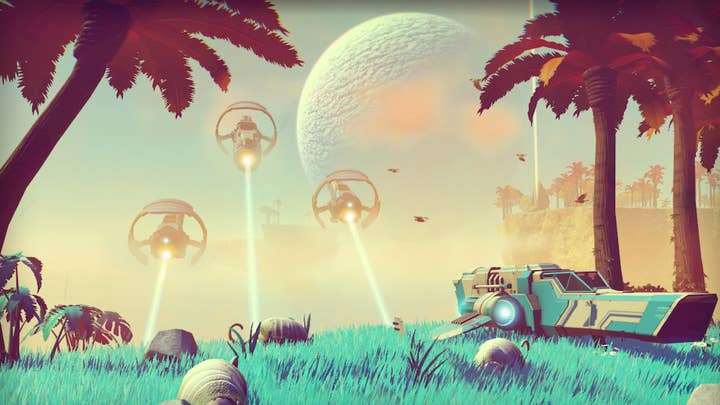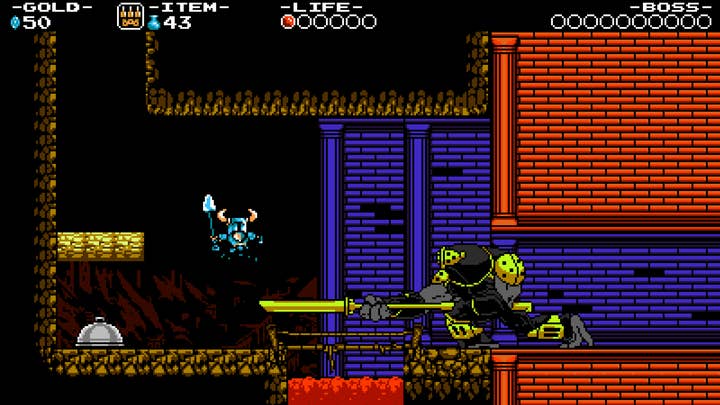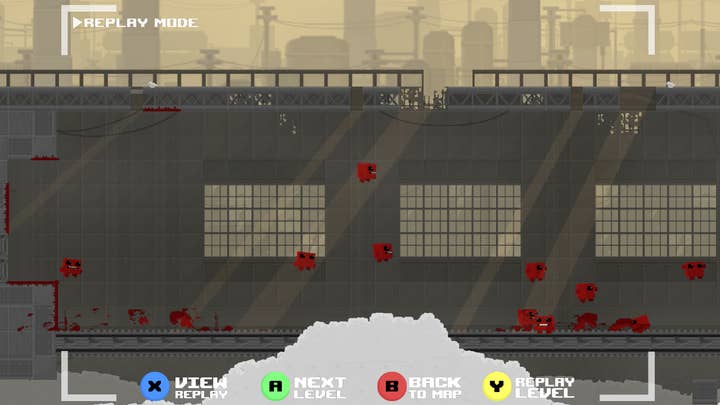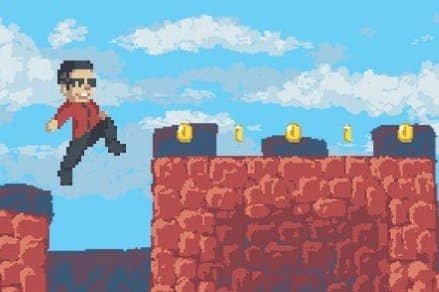Dan Adelman: "Good games are worth paying for"
Trying to make it as a small developer? Nintendo's former indie champion is here to help
When Dan Adelman ended his nine years at Nintendo, he did so with one of the finest tweets you're ever likely to see.
As head of digital content and development, a significant part of Adelman's job was to be the approachable face of Nintendo to the great, swelling wave of indie developers that had emerged since he joined the company in 2005. But by early 2014 it had become clear that Adelman was no longer able to freely use the most direct communicative tool at his disposal: Twitter.
The day he broke his silence was also the day he announced his decision to leave Nintendo altogether, and he did it like this:
https://twitter.com/Dan_Adelman/status/496265936283140096 Pullquotes"Being on the platform side for so many years you see what does well and what doesn't, you start to see the patterns"
"I was thinking about the tweet for a while," he says, grinning. "I had it in mind well in advance." But that tweet earned Adelman a certain reputation among journalists prone to leaping on the nearest available conclusion. When he agreed to meet with GamesIndustry.biz at the Unite conference in Seattle, several of my peers told me, with no small measure of excitement, that Adelman had an axe to grind - a burning need to unburden himself after Nintendo's attempts at repression.
The truth is a lot less vitriolic, but no less interesting. That tweet made for great copy, sure, but it also created a false impression about why Adelman decided to close that chapter of his life and move on to the next. After a total of 14 years working in business development for console companies - prior to Nintendo Adelman spent five years at Xbox - he felt the time was right to use that accumulated knowledge and experience to help the industry's most creative people realise their ambitions.
"Being on the platform side for so many years you get this bird's-eye perspective," he says. "You see all of the games, you see what does well and what doesn't, you start to see the patterns. You can spot the game early on that isn't going to end well, and the one that has potential if the developer doesn't screw it up. What I'm trying to help developers with is the identification of those patterns."
Adelman's stature is such that he has more offers of work than he can possibly accept, but over the course of our long, meandering conversation certain themes emerged - general guidelines from which any indie developer could benefit.
1. Making games doesn't make you special, so what does?
One need only spend a few moments pondering the Unity Engine's remarkable usage statistics to understand just how accessible the tools of game production have become. There are more developers active now than at any time in the medium's history, probably by an order of magnitude. But while that might sound like an absolute good at first, this rampant abundance presents some very difficult problems for anyone trying to make a living from making games.
Pullquotes"It's hard to say, but not everyone is that interesting. Their unique take on the world might look a little generic"
"The cost of development is definitely lower than ever before, but the number of really talented designers isn't going to increase significantly in such a short window of time," Adelman says. "My daughter went to a summer camp where they taught the basics of Unity for week - like a computer camp - and by the end of the week she had an endless runner game that was probably comparable to a lot of stuff on the App Store.
"She couldn't compete with someone who's really talented at design. It's a craft, and not everyone who thinks they can be a great game designer will become one. A lot of indie developers who became 'overnight successes' were working at it for ten years."
Adelman offers Super Meat Boy as an example: a conventional game in certain respects, but one from a team with the experience to refine and polish to an exacting standard. More importantly, Team Meat took that classic template and made it something distinctive and personal.
"It sounds cheesy, but when you're competing with the rest of the world you need to find what it is that you have that nobody else does," Adelman continues. "That's your life experiences. Put all of that in the game. And it's hard to say, but not everyone is that interesting. Some people have a really interesting perspective on the world, and other people are like a lot of other people. Their unique take on the world might look a little generic."

2. Find your niche and own it
Video games are a creative business, and one of the chief appeals of working as an independent developer is to tip the balance away from business and towards creativity. In a sense, that's exactly why the indie community managed to gain such a huge amount of traction in an industry weighed down with copycat AAA blockbusters, and why Adelman found himself drawn to that subculture when he first joined Nintendo.
However, a common mistake among indies is the belief that the creation of the product and the selling of the product are two separate things. Indeed, according to Adelman, that separation is, "really impossible."
Pullquotes"I don't want to tell anybody to develop your game for this or that type of consumer. That's EA's model, and EA's going to beat you at that game"
"I don't want to tell anybody to develop your game for this or that type of consumer. That's EA's model, and EA's going to beat you at that game," he says. "But a piece of advice I give to a lot of developers is to put your personality into it and make it your game, but then find out who's going to like that game, find out where that niche market is - because each individual game can be a niche market.
"Then make sure that you go back and really polish that game and iterate on that game so it really owns that niche. I've seen too many game where the person doing the art is all about cute and fluffy, and the person doing the mechanic is all about hardcore gameplay. There's a mismatch."
Shovel Knight is an instructive example here. Yacht Club Games had a great idea that would probably have found an audience on any platform, but it was savvy enough to recognise that its game really belonged on the 3DS and the Wii U - at the time they made that decision, probably the least appealing platforms to most indie developers.
"They focused on what a lot of people perceived to be the weakest platform, and did very, very well," Adelman says. "They released some numbers, and sales were comparable to or better than Steam on both Wii U and 3DS individually."

3. Premium pricing should always be an option
Adelman has the luxury of picking and choosing who he will work with in this new phase of his career, and while he isn't able to reveal any specific plans just yet, it's clear that free-to-play games aren't high on his wish-list. Even in the more "ethical" manifestations of the freemium model, which don't use, "psychological tricks to goad the player into opening their wallet," Adelman would still be reluctant to be involved in their development. Ultimately, his stance comes to down to a very simple, very important belief: "Good games are worth paying for."
Pullquotes"I feel like I have to remind everyone that a lot of these developers live on ramen noodles and sleep on their friends' couches"
Adelman categorises the race-to-the-bottom mentality on digital platforms as a big problem for game developers, who seem less and less inclined to fight against the prevailing winds. From Adelman's perspective the sort of experiences a gamer can buy for $15 to $20 are "a steal" compared to what's available in other entertainment media - and even compared to the products being created on the AAA level of the games industry.
Fortunately, the reception that No Man's Sky and Ori and the Blind Forest received at E3 and Gamescom this year is an encouraging sign that there's a lot of potential for ambitious indies to make the case for premium pricing and day-one purchases once again - particularly on consoles, perhaps the last consumer environment where a substantial price tag doesn't seem anachronistic.
"I'm a big fan of the Humble Indie Bundle and what they're trying to do, but I think that a lot of people are now trained to wait for games to come out in that way. I'd like to see more developers put a stake in the ground and say, 'I'm not going to discount my game for a year'."
"A lot of people follow me on Twitter who are just fans of the whole indie gaming scene. And I feel like I have to remind everyone that a lot of these developers live on ramen noodles and sleep on their friends' couches. If you're a fan, once a month buy something at full price. Pay $15, pay $20, as a donation if nothing else."

4. Marketing isn't a dirty word - as long as you do it right
Any indie developer without an established pedigree is going to keep running into the same frustrating problem: the more accessible the platform, the more unlikely your chances of success. In Adelman's view, every existing platform for games has a discovery problem, with iOS and Android the worst afflicted. An algorithm sophisticated and nuanced enough to be an adequate solution is the holy grail, though Adelman concedes that it, "may not even be technically possible." All of which highlights the importance of a discipline that many indies either don't understand or neglect altogether.
Pullquotes"If you look at marketing as selling your product to people who otherwise don't need it, that, I think, seems a little distasteful"
"Most people view marketing as a dirty word, and I'm no lifelong marketer either," Adelman says. "If you look at marketing as selling your product to people who otherwise don't need it or don't want it - which is kind of what traditional marketing is - that, I think, seems a little distasteful to the indie community, and rightly so. But there are people out there who, if they just knew about your game, would actually really like it. You're doing them a service by letting them know about it. It just takes time to get the word out to the right people."
And based on Adelman's experiences since he started looking for projects post-Nintendo, time is an undervalued commodity among indie developers. "Some had already shipped and aren't doing well. I can't help that person any more," he says, but to make a material difference to the commercial success of any given product he would ideally want a minimum of six to nine months ahead of the launch.
That's a solid rule of thumb that any indie contemplating how to find and build an audience should adhere to, and the sort of sustained, public-facing approach that developers like Mike Bithell (Thomas Was Alone) and Tom Francis (Gunpoint) have employed to their advantage.
"It's not easy, though," Adelman says, grinning once again. "Just ask Phil Fish. There's ways to do it wrong."









